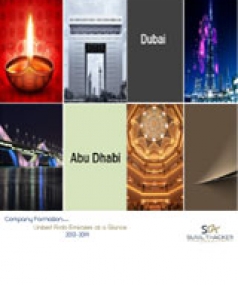Freezone Bahrain International Investment Park
 1. What law established this free zone?
1. What law established this free zone?
The Bahrain International Investment Park (BIIP) was established in 2005 by the Industry, Commerce and Tourism Ministry (MoICT). The BIIP is considered the flagship business park. It houses over 114 multinational and manufacturing service companies.
2. What are the main internal regulations governing this free zone?
The internal regulations of this Free Zone are managed by the MoICT. It intends to devise clear legislative, legal and regulatory framework in current Free Zones as well as future Free Zones.
3. Does this free zone has reciprocal arrangements with other Free Zones?
No, BIIP does not have reciprocal arrangements with other free zones.
4. What key areas of local legislation must a business operating in this free zone still comply with? What are the most important examples of how this affects operations?
The key areas of Bahrain legislation which businesses operating in this Free Zone must comply with are:
Commercial Companies Law, Bahrain Decree-Law No. 21/2001 as amended by Bahrain Law No. 1/2018.
- Bahrain Ministerial Decision No. 17/2018.
- The GCC Common Customs Law by Bahrain Royal Decree No. 67/2003.
- Bahrain Decree Law No. 48/2018 on Value Added Tax (VAT Law).
- Bahrain Decree-Law No. 7/1987 (Law of Commerce).
- Bahrain Law No. 31/2018 (Competition Law).
The above list is not exhaustive, but any laws which are not covered by the internal regulations of the Free Zone must be complied with.
5. What key agencies do businesses operating in this free zone need to register with or be aware of?
The agencies which a business operating in this Free Zone needs to register with mainly depends on the type of activity carried out by the company. For example, for industrial projects, a clearance is needed from the Environment and Climate Affairs Ministry.
Some agencies include the:
- Commerce and Industry Ministry.
- Foreign Affairs Ministry.
- Chamber of Commerce and Industry.
- Environment and Climate Affairs Ministry.
- Interior Ministry.
- Justice, Islamic Affairs and Awqaf Ministry
6. How does a company set up in this Free Zone?
On receiving the completed application form, the registration of a new company in BIIP is pretty quick and straightforward.
These are the steps generally involved:
a. Submission of a completed Application Form.
b. Documents reviewed by officials.
c. Project Approval-payment of administration fee.
d. On the approval of the officials, the business entity needs to be registered with the MoCIT.
e. Once the above is completed, the entity needs to obtain an industrial license. There are several documents required for the incorporation of an entity in this Free Zone. These are:
- BIIP application form.
- Preliminary industrial license.
- Entity's Company Profile.
- Copy of the applicant's CPR/passport.
- Registration Documents.
- Tenancy Agreement: Lease of Plot.
- Environmental and Industrial Approval.
- Outline a business plan.
- Preliminary site development plan.
- Legal.
- Financial.
7. What features go companies set up in this Free Zone have?
Like most other Free Zones which are granted benefits, incentives and other facilities, BIIP offers various incentives which attract foreign and local investors. BIIP is favoured because it is cheaper as compared to other Freezones. BIIP operates 24 hours a day and provides access to a variety of facilities which makes it an ideal free zone to set up a business in Bahrain. It also offers tax exemptions on tax duty for GCC and other Arab industries. BIIP is an exclusive investment park in the Middle East with enhanced facilities and customs services. BIIP is setting up a ‘one-stop-shop' which will help potential investors with their application process as well as guidance on all the legal requirements.
8. What can companies set up in this Free Zone do?
These are the activities which a company in BIIP can carry out:
- Manufacturing.
- International services.
- Food processing and packaging.
- Aluminium smelting, rolling and export industries.
- Iron and steel engineering.
- Medical (i.e. Pharmaceuticals, medical devices).
- Construction material manufacturing.
- Material and chemical processing (i.e. Plastics, Fiberglass, Petrochemicals).
- Information technology.
- Consumer goods (i.e. Electronics, garments and textiles).
- International services (i.e. consulting, marketing, logistics, knowledge-based services).
9. What can companies set up in this Free Zone not do?
Generally, any activity which conflicts with the applicable laws in Bahrain is not permitted in BIIP.
These include:
- Security threats.
- Disruption of the computer or information technology services.
- Activities not stipulated in the license.
- Storage or possession of goods that are prohibited.
- Commencing operations in BIIP without relevant approvals from authorities, like the environment approval.
- Any other activities or acts are not permitted by a decision of the appropriate authorities.
This list is not exhaustive, but rather the essence of what is prohibited in this Free Zone.
10. What types of business are allowed to operate in this Free Zone?
These are the activities which a company in BIIP can carry out:
- Manufacturing.
- International services.
- Food processing and packaging.
- Aluminium smelting, rolling and export industries.
- Iron and steel engineering.
- Medical (i.e. Pharmaceuticals, medical devices).
- Construction material manufacturing.
- Material and chemical processing (i.e. Plastics, Fiberglass, Petrochemicals).
- Information technology.
- Consumer goods (i.e. Electronics, garments and textiles).
- International services (i.e. consulting, marketing, logistics, knowledge-based services).
11. What inheritance laws apply in this free zone?
The inheritance law is governed by Islamic Sharia Law.
12. What taxation applies?
There is no tax on income, capital gains, sales, estate interest, dividends or royalties. However Bahrain Decree-Law No. 48/2018 on VAT applies in BIIP.
13. What accounting and auditing rules do businesses operating in this free zone need to adhere to?
Companies have to undertake and maintain accounts for all the trading activities which are carried out by them.
14. Where do businesses operating in the free zone generally locate their bank accounts?
The companies are required to open a local bank account before obtaining BIIP. For the same, copy of the authorised signatory forms, commercial registration, MoCIT affiliation certificate and other relevant documents are required.
15. Are there any specific rules governing when the moveable property is removed from the free zone area or transferred into the free zone area from another jurisdiction?
Activities are generally confined to BIIP. Operation in other zones may require execution of a local agency agreement.
16. Are any specific licenses required to operate as a particular type of company in this free zone?
The companies in this Free Zone only carry out economic activity post obtaining the relevant license. Additionally, the company cannot practice an activity which has not been specified in the permit. Licenses issued in this zone are:
- Industrial License
- Manufacturing License
- International Services.
17. Is there any specific ongoing regulation or monitoring firms operating as particular types of companies by this free zone authority?
The Operations of BIIP are monitored and regulated by the MoCIT.
18. How are disputes settled in this free zone?
Generally, the agreement stipulates the dispute resolution mechanism to be followed in a situation where a dispute arises. In the absence of the same, the courts in Bahrain assist in resolving disputes. The main mechanisms in Bahrain are:
a. The Civil Courts and Sharia Courts.
b. The Court of Appeal.
c. Court of Cassation.
d. Bahrain Chamber of Dispute Resolution (BCDR).
19. How are disputes between onshore companies and companies in this free zone settled?
Generally, the agreement stipulates the dispute resolution mechanism to be followed in a situation where a dispute arises. In the absence of the same, the courts in Bahrain assist in resolving disputes. The main mechanisms in Bahrain are:
a. The Civil Courts and Sharia Courts.
b. The Court of Appeal.
c. Court of Cassation.
d. Bahrain Chamber of Dispute Resolution (BCDR).
 20. What are the main rights and duties of an employer and employee working in this free zone?
20. What are the main rights and duties of an employer and employee working in this free zone?
Bahrain Decree-Law No. 36/2012 promulgates Bahrain's Labour Law (Labour Law). Article 71 of Bahrain Decree-Law No. 36 /2012 provides tthe worker is under an obligation to perform the duties which are entrusted to them under the provision so the employment agreement and the work regulations. They have to execute these instructions and orders of the employer for performing the work.
21. How are employment disputes between employers and employees working in this free zone settled?
In addition to the Labour Law, unless a separate mechanism has been agreed on in the employment contract, the labour dispute resolution is addressed before a designated body which is the Authority of settlement of individual labour disputes.
22. What entry qualifications and permits are required for staff working in this free zone, and how are employees registered with the authorities?
All the employment contracts must be registered with the authorities.
While employing expatriates, three mandatory processes must be completed:
a. Clearance by the Labour Ministry.
b. Issuing of employment visas by the Immigration Department.
c. Issuing of resident cards by the Immigration Department.
23. How are staff working within this Free Zone registered with the authorities?
Once the visa is issued, it is collected by the BIIP representative and deposited at an entry point in Bahrain, post which a deposit slip is issued. The copy of both is sent to the company. STA’s Law Firm in UAE specializes advising on corporate matters.
24. What rules govern the remuneration and minimum benefits of staff working in this Free Zone?
The Labour Law provides a comprehensive framework for employment in Bahrain and it governs the remuneration and minimum benefits of staff working in this Free Zone.
25. What rules govern the working time and leave of staff working in this Free Zone?
The Labour Law provides a comprehensive framework for employment in Bahrain and it governs the remuneration and minimum benefits of staff working in this Free Zone.
26. What are the main features of a property lease in this free zone, and what are the key restrictions when leasing a property?
Once the company receives approval for the industrial license, the lease agreement has to be signed for that specific industrial area. BIIP provides a lease term of 25 years and competitive rental lands in an environmentally and professional positioned landscapes.
27. Is it possible to apply for a building permit in this free zone? How is this done, and what steps are required?
Yes, it is possible to apply for a building permit. Once the company obtains an industrial license and the application for the lease has been approved, the company then can proceed for securing a building permit for commencing construction.
28. What environmental requirements must construction companies building in this free zone consider, e.g. form of building, landscaping or building height?
Before signing the lease with BIIP, the company has to abide by the requisite environmental approvals from the environment protection agency. The Unified Guidebook of Building Permit Regulations provides for a detailed description on how buildings are permitted in Bahrain. Kindly email us on corporate@stalawfirm.com if you have any further query in this regard.
29. What are the key restrictions when leasing a property in this Free Zone?
Once the company receives approval for the industrial license, the lease agreement has to be signed for that specific industrial area. BIIP provides a lease term of 25 years and competitive rental lands in an environmentally and professional positioned landscapes.
30. What are the rules governing the use of utilities in this free zone?
Utilities in BIIP come under the Bahrain Electricity and Water regulations.
 31. How do retail premises establish themselves in this Free Zone?
31. How do retail premises establish themselves in this Free Zone?
There are no particular restrictions prohibiting retail establishments from operating in BIIP. The same process would apply as for any other type of company incorporation.
32. Is it possible for hotels and retail establishments to operate in this free zone- how do they establish themselves?
The incorporation procedure is similar to that of any other company incorporation in BIIP.
The full version of this questionnaire has been published by STA on Lexis Nexis and can be viewed by clicking here
 English
English
 عربي
عربي Русский
Русский 官话
官话 português
português
 Türk
Türk 




